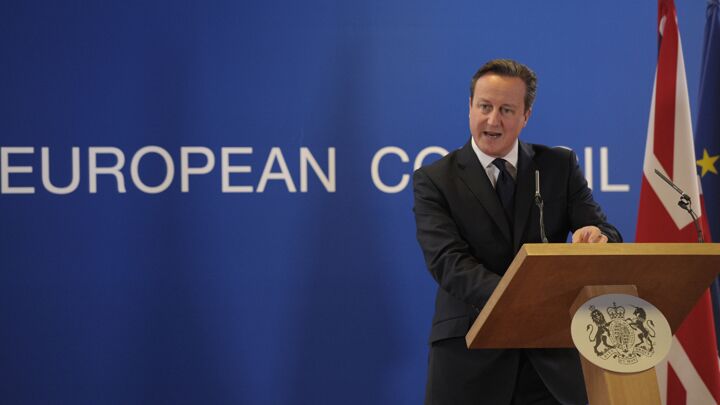
David Cameron Defeats European Army
British Prime Minister David Cameron blocked plans for the European Union to own its own armed forces during a defense summit held December 19 to 20, saying “it isn’t right for the European Union to have capabilities, armies, air forces and all the rest of it.”
French President François Hollande insisted that Mr. Cameron was making this up. “This statement was, in my opinion, for the large part, a bit false,” said Mr. Hollande, adding that “[n]obody envisages the creation of a European army.”
But Mr. Hollande’s statement is the one that is clearly wrong. President of the European Parliament Martin Schulz said “We need a headquarters for civil and military missions in Brussels and deployable troops,” on December 19. That’s at least one high-ranking European leader who envisions the creation of a European army.
But what was under discussion at the summit was much subtler. Several months ago the European Commission proposed having drones owned and operated by the European Union. Mr. Cameron categorically rejected that proposal. “We should not be looking at EU-owned drones, tanker fleets,” he said, “and we need to be very careful to write this down in language people can see that this is not being contemplated.”
Mr. Cameron showed good foresight. Here’s how the EU typically operates: It sets up a small EU-owned and controlled force of surveillance drones that, by law, are not allowed to be armed. A few months later a slight change is made to that law—they’re not allowed to be armed except for the purpose of self-defense. Gradually that “self-defense” clause is absurdly stretched, so that they can carry missiles and take out targets in the air or on the ground “in self-defense.” Officials promise it will not cost more than $100 million. They quickly break those promises. Within a few years the EU has a powerful drone air force.
While that plan was nipped in the bud, the EU still made other significant steps forward. The European Commission and other EU bodies were tasked with creating “an EU Cyber Defense Policy Framework” and “an EU Maritime Security Strategy.” That puts these two projects beyond Britain’s veto power. The Commission was also given the responsibility of setting new standards for European military equipment—something they could use to prevent EU nations buying new equipment from the U.S. The summit’s conclusions also call for the development of a European drone by 2020 to 2025, and the development of air-to-air refueling technology.
The European Commission, then, has plenty of scope to increase European military cooperation. We’ll have to wait and see if anything comes of it.
France asked for the EU to pay for its military mission to the Central African Republic, but German Chancellor Angela Merkel quickly shot that down. “We cannot fund military missions in which we are not involved in the decision process,” she said. Merkel, understandably, does not want to give France a blank check for military intervention in action, but she’s not opposed to the principle of a common EU defense fund, provided there are proper (i.e. German) controls on how it is spent—so this idea will also be investigated.
Chief Executive of eads Tom Enders is hopeful. Enders, who is usually critical of European politicians on defense matters, called the meeting a “very positive forward step.” He said that the agreements to do more to coordinate military purchasing were “a sign that the political will exists” for further action.
But in the near future, moves towards a European Army will probably come from cooperation between individual member states, rather than the EU. “The frequent calls for more cooperation between member states … lends force to one of the major pre-summit arguments put forward by officials and diplomats: that some of the most significant effects of the summit would be felt not at the EU level, but in cooperation between ‘clusters’ of member states, and at the national level,” wrote the European Voice. It continued: “The focus on cooperation between groups of member states reflects the current limited level of pan-EU collaboration on defense issues, and also sensitivities about whether cooperation should be developed through the EU or nato.”
This will be the way forward for the near future. Britain is Europe’s biggest obstacle to closer cooperation, but not the only one. It will probably take a major crisis to convince even the less euroskeptic nations to give up more control over their military.
But this “clusters” approach is exactly the route Germany has been pursuing.
There are some big obstacles in the way of a common European military. But Germany, especially, is committed to make it happen. Watch for progress toward this goal to continue.
For more on this subject, see our recent article “Under Construction.”
